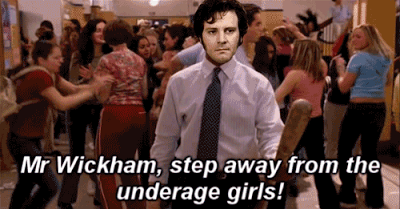
I just heard this morning from Becca at Lost In Books about a Turn of the Century Salon (kind of like The Sunday Salon, but about novels published between 1880-1930) hosted at November's Autumn. Naturally I can't pass up the opportunity to participate and I hope you will, too. Not pass on it, I mean.
ANYwhoooo, the opening month of January has some questions for participants to use to introduce themselves. Hi, my name is Tasha and...
What Classics have you read from the 1880s-1930s? What did you think of them?
I manage a classics book blog (called The Project Gutenberg Project), so a lot. Listing every book I've read from the turn of the century would be too much, but here are some highlights from last year:
- The Man Who Thursday by GK Chesterton (1910)-Definitely recommend! One of my favorite reads of the year.
- The Wonderful Wizard of Oz by Frank L. Baum (1900)-Delightful story. Not as streamlined as the movie, but very much worth the read.
- The Circular Study by Anna Katharine Green (1900)-AKG is crazy, y'all. I would say she was the Dan Brown of her time, but I don't want to insult Dan Brown.
- Mystery at Geneva: An Improbable Tale of Singular Happenings by Dame Rose Macaulay (1922)-This is a really odd book that at first seems like a mystery/spy thriller, but is actually a pretext for Macaulay to make fun politics, the news media, and gender roles. It's 80% total irony and has a really strange twist at the end that totally blindsided me. I actually enjoyed it, though I can see why it's a "forgotten classic."
- Scaramouche by Rafael Sabatini (1921)-Another one of my favorite reads of 2012. I love everything about this book. French Revolution! Sword fights! Theater people! Twisty twists! I really don't know what to say if you haven't read this book.
- The Fortieth Door by Mary Hastings Bradley (1920)-This is an adventure/love story set in Egypt starring the dashing American archaeologist Jack Ryder and a Turkish virgin named Aimée. So just to recap: adventure, Egypt, archaeology, forbidden romance. It's a must-read.
- Beasts, Men, and Gods by Ferdinand Ossendowski (1922)-The memoir of a man during the Bolshevik Revolution who tries to escape to American by traveling through Siberia and China, only to be forced to detour through Mongolia. I'm not a huge fan of memoirs as a rule, but this one was incredible and amazing. This is one of the books I keep telling people to read and they never do. Missing out!
- A Strange Manuscript Found in a Copper Cylinder by James De Mille (1888)-This is a very strange book, probably the strangest book I read all year--and I read some pretty odd books, let me tell you. Anyway, I hated it. Much better to go with The Land That Time Forgot.
- The Mary Frances Cookbook by Jane Eayre Fryer (1912)-This is a children's cookbook that combines recipes with a story. IT IS THE CUTEST THING EVER. Seriously, the illustrations are precious and the story is really heartwarming. Plus now I know how to cook a steak, Edwardian-style! Yeehaw! Let me just get my wood-burning stove started up...
- The Man in Lower Ten by Mary Roberts Rinehart (1906)-This is another one of my favorite reads last year. It's a mystery about a man suspected of murder, but he didn't do it. So he has to find out who did! I loved all the characters and had a blast reading this book. It's soooo much fun.
- The Riddle of the Sands by Erskine Childers (1903)-A spy novel set in the Frisian Island (north coast of Germany). Totally awesome characters, slightly claustrophobic atmosphere, and a really fun, fast read. Fun fact: Winston Churchill used this book as a model for actual British military actions.
- The Prisoner of Zenda by Anthony Hope (1894)-Okay, I didn't read this last year, but I have to include it because it's one of my favorite books of all time. There's romance, adventure, a great villain, mistaken identity and a castle. Definitely another must-read, only must-readier than any of these other books, mkay?
Wow, that's way too many novels. Sorry, went a little overboard there. Let's move on to another question, shall we?
Which authors do you love?
So far my favorite turn-of-the century authors are Mary Roberts Rinehart, Rafael Sabatini, and Anthony Hope. And I guess Anna Katharine Green, since I keep reading her even though I think her books are CRAZY. If you have recommendations based on that, let me know!
Which authors do you hope to learn more about?
This year I'm planning to read Joseph Vance by William de Morgan (on Melody's recommendation), and I'd like to read more classic mysteries (that's my thing). I'd really like to learn more about/read more books by Mary Roberts Rinehart, Dorothy L. Sayers, Agatha Christie, Rafael Sabatini, Anthony Hope, and I'd like to read books by more female writers in general.
I am definitely looking forward to this salon and learning more from the other bloggers participating!
Further reading:
Discus this post with me on Twitter, FaceBook, or in the comments below.






